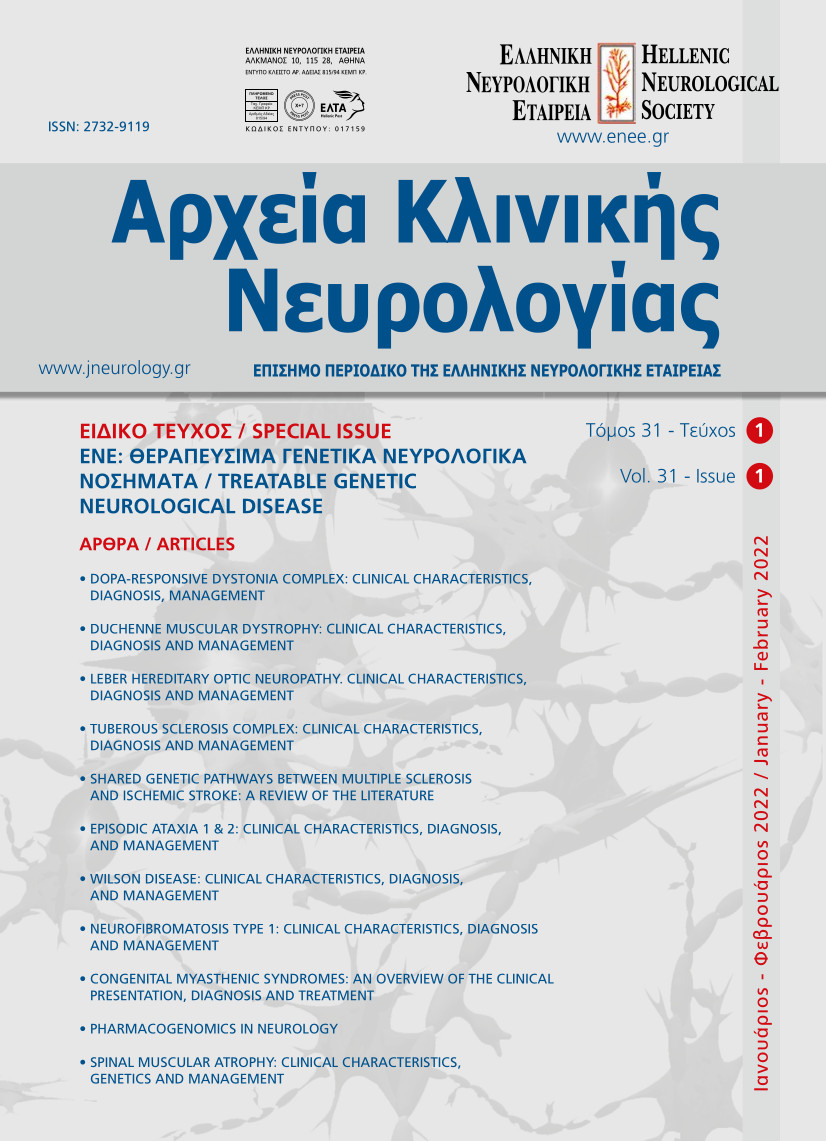TUBEROUS SCLEROSIS COMPLEX: CLINICAL CHARACTERISTICS, DIAGNOSIS AND MANAGEMENT
Λέξεις-κλειδιά:
tuberous sclerosis, TSC, antiepileptic drugs, mToR inhibitorsΠερίληψη
Tuberous Sclerosis Complex (TSC) is a rare genetic disorder caused by germline mutations in TSC1 and
TSC2 genes. Loss of function genetic alterations in TSC1 and TSC2 lead to hyperactivation of the downstream
mammalian target of rapamycin pathway (mTOR), which represents an important cellular circuit
in the regulation of cell proliferation and survival. From a phenotypic standpoint, TSC is characterized
by the development of benign hamartomatous tumors in different parts of the body, and thus a diverse
clinical picture for each affected individual. The most frequently involved organ systems include the brain,
the skin, the kidneys, the heart, the eyes, and the lungs. Central nervous system involvement manifests
with a combination of symptoms such as seizures, impaired intellectual development, autism and behavioral
problems. Accurate diagnosis is essential in implementing appropriate surveillance and treatment in
patients with this disorder. The treatment is supportive and symptomatic, and requires the expertise of
multiple disciplines. New treatment approaches and novel drugs, such as mTOR inhibitors, have been introduced
in order to manage specific manifestations and have resulted in better outcomes and improvement
of the patients’ quality of life. In this review, we summarize the current data on the clinical characteristics,
diagnosis and management of TSC from a neurologic perspective.


